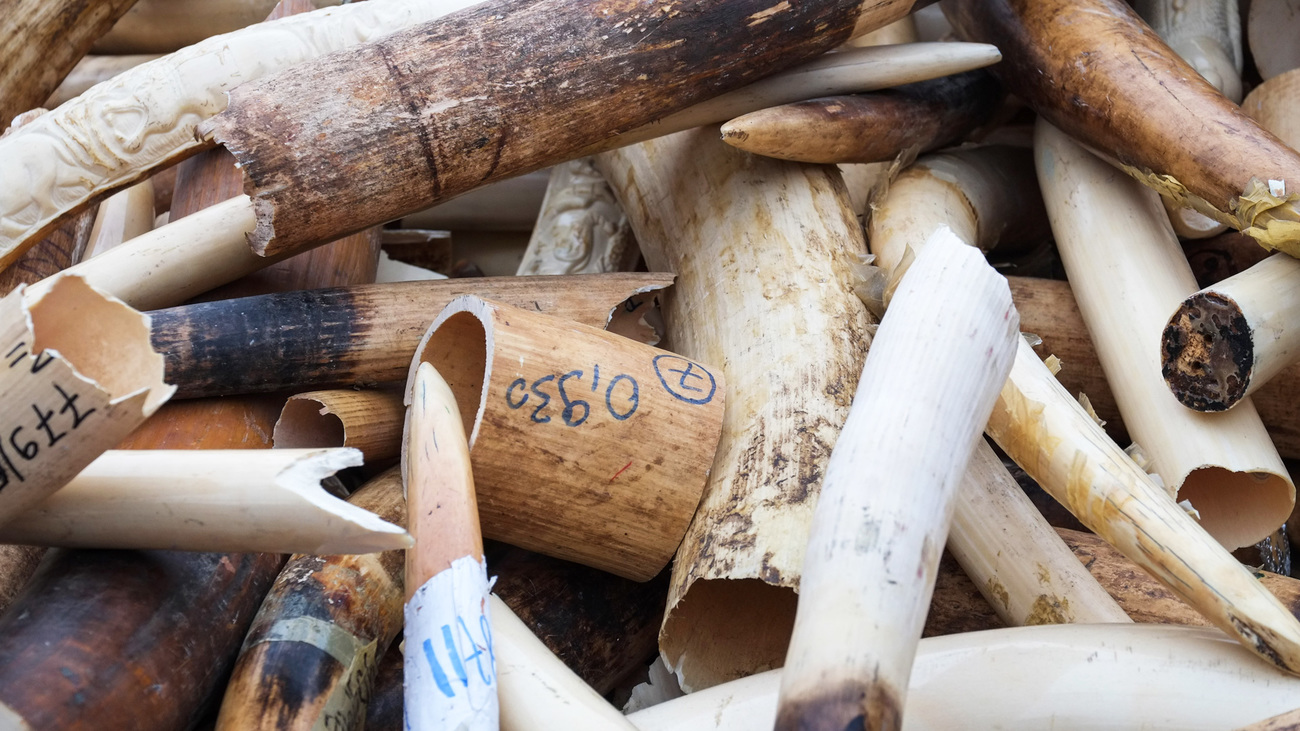Wildlife Crime Prevention - Europe
The European Union is widely considered to be the third largest destination for illegal wildlifecontrary to popular belief, no ivory is needed for business
contrary to popular belief, no ivory is needed for business

Today, 8 December 2017 the European Commission closes its online consultation to find out what EU citizens and other stakeholders think about the ivory trade. Currently, ivory is being sold online, in markets and in auction houses throughout the European Union.
An opinion poll conducted across 16 countries by IFAW earlier this year indicates that 90% of people are not interested in buying ivory products, and close to 65% said they would support a full ban on the trade of all ivory in the EU. At the same time, some of the biggest auction houses worldwide claim that banning this trade would have a significant negative impact on their business and income.
However, I find this is not necessarily the case as I speak to John Albrecht, CEO and proprietor of Leonard Joel, one of the top auction houses in Australia. Leonard Joel has set a groundbreaking example by not trading any raw ivory, like pairs of tusks, or post-1921 worked ivory from 1 January 2017, whilst also ensuring that its auction rooms will no longer be involved in worked ivory pre-1921 as from January 2019. “Auctioneers don’t make the connection between their activities and the unnecessary and inhuman practice of poaching and slaughtering elephants”, John argues. But they are directly related, and as the Leonard Joel action house shows, auctioneers can actually help to positively affect this supply chain without losing much of their business, which is often a key concern.
When I ask him about the effect of this decision on their sales, contrary to popular belief, John reveals that they have observed no downturn in their sales in the past year. “In fact, our recent sales have consistently beaten our budgets. And nobody working with us has lost his or her job." This is supported by a recent study conducted among UK auction houses, the largest importers and exporters of art and antiques in Europe, which shows that the volume and value of ivory pieces sold by each auction house is actually only a very small part of their business (October 2017, ©Two Million Tusks).
John agrees with IFAW that government authorities and (business) organizations can no longer turn a blind eye, that the tipping point is now. “We can’t wait for the ivory trade to fall out of fashion, as it is rapidly overtaken by the number of elephants killed every year.” When the bulk of ivory is removed from market circulation, the value, demand and supply are disrupted as a result.
IFAW therefore urges the EU to introduce stronger legislation that effectively bans the trade in ivory, with only a few detailed exemptions for e.g. musical instruments and artefacts of significant historical value. We are joined by other NGOs in this plea, and have received support from numerous others including over 165 scientists from 33 countries, Members of the European Parliament, the African Elephants Coalition, New York State officials, and E-Bay. All of them, like John Albrecht, have addressed their letter directly to Commissioner Vella, asking him to take a strong stance and to close the EU ivory markets.
The time to act is now, because animals are crucial to the healthy ecosystems we as people need to survive. The life of an elephant is worth more alive than dead!
Eleonora Panella
Related content
Every problem has a solution, every solution needs support.
The problems we face are urgent, complicated, and resistant to change. Real solutions demand creativity, hard work, and involvement from people like you.